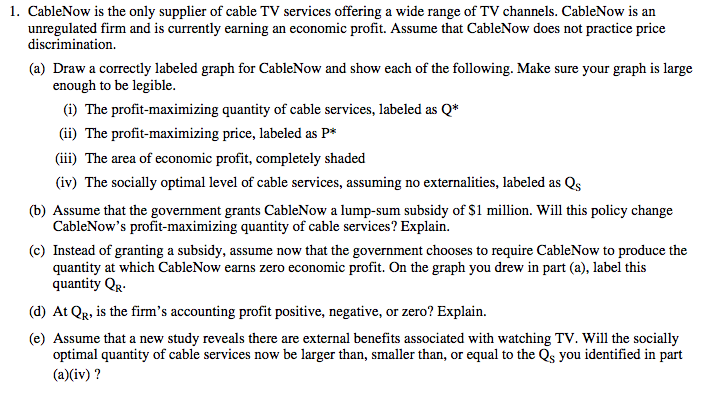Monopolistic Competition
Assumptions
- many buyers and sellers
- heterogeneous/differentiated goods: (packaging, branding, after-sales service)
- low degree of price setting
- low barriers for entry and exit
- imperfect information
Monopolistic Competition, video - mjmfoodie
Revenue Curves
- Downward sloping demand curve
- Relatively, but not perfectly elastic, demand curve
- MR curve below Demand for same reason as monopoly
Profit Max in Short-run
- Firm produces at profit max
- Profits/losses possible in the short-run
Long-Run
- Entry/exit in the long-run will eliminated profits/losses
- Break-even only happens in the Long-run (like Perfect Competition)
Non-Price Competition
- Branding - development of recognizable brand in an attempt to develop brand loyalty
- Product Development - continuous improvement
- Customer Service - good service increases demand
- Location - convenient location increases demand
- Advertising - makes buyers aware of products
Efficiency
- Allocative Efficiency - (P = MC)
- Productively Efficient - (P = minATC)
- Monopolistic Competition neither achieves Allocative or Productive Efficiency
Monopolistic Competition compared to Perfect Competition
P (is higher)
Q (is lower)
Consumer Surplus (is less)
Allocative and Productive Efficiency (not achieved)
Product (differentiated)
Welker - Monopolistic Competition - Video
(Monopolistic Competition FRQ's 2009, 2007, 2004)
2009 AP Microeconomics Exam FRQ, Q1

